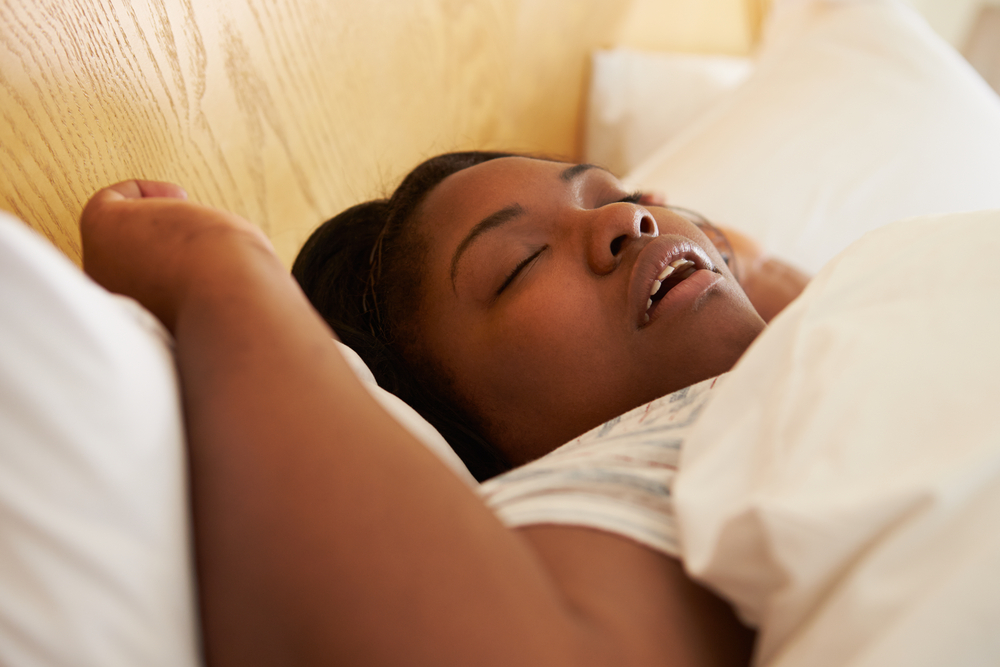Snoring is often considered a minor annoyance, but for many women, it can be a source of embarrassment and frustration. While snoring is more commonly associated with men, studies reveal that a significant percentage of women also experience this nightly disturbance. Snoring can affect a woman’s sleep quality, leading to daytime fatigue, mood swings, and even health issues. Understanding why women snore at night and finding effective ways to stop it is essential for improving sleep health and overall well-being.
Why do women snore?
Snoring occurs when airflow through the mouth and nose is partially obstructed during sleep. This obstruction causes the tissues in the throat to vibrate, producing the sound we recognize as snoring. While snoring can affect anyone, certain factors make women particularly susceptible.
-
Anatomical differences
Women have narrower airways than men, making them more prone to snoring. As they age, hormonal changes can lead to a loss of muscle tone in the throat, further narrowing the airway. This is particularly common during and after menopause.
-
Weight gain
Weight gain, especially around the neck area, can contribute to snoring in women. Excess fat tissue around the neck can pressure the airway, making it more likely to collapse during sleep. This is a significant factor for many women who begin to snore as they gain weight with age.
-
Sleep position
Sleeping on the back can cause the tongue and soft tissues to collapse backward, partially blocking the airway. This is a common trigger for snoring in both men and women. However, due to their narrower airways, women may experience it more intensely.
-
Alcohol consumption
Alcohol relaxes the muscles in the throat, increasing the likelihood of snoring. Women who consume alcohol before bed may find that their snoring worsens as a result. This is because the relaxed muscles can more easily collapse into the airway.
-
Hormonal changes
Hormonal fluctuations, particularly during pregnancy and menopause, can increase the likelihood of snoring. During pregnancy, the increase in blood volume and the growing uterus can pressure the diaphragm, affecting breathing. Menopause, on the other hand, brings about changes in muscle tone and fat distribution, both of which can contribute to snoring.
The impact of snoring on women’s health
While snoring might seem harmless, it can have serious implications for a woman’s health. Chronic snoring can lead to sleep apnea, a condition where breathing repeatedly stops and starts during sleep. This can result in fragmented sleep, leading to daytime fatigue, difficulty concentrating, and irritability. Over time, sleep apnea can increase the risk of more severe health problems such as high blood pressure, heart disease, and stroke.
Furthermore, snoring can strain relationships, particularly if it disrupts a partner’s sleep. Many women feel embarrassed or self-conscious about their snoring, which can lead to anxiety and even avoidance of sleep-related intimacy. Understanding these impacts underscores the importance of addressing snoring as a serious health concern rather than just a minor inconvenience.
How to stop snoring: Effective solutions
Addressing snoring involves identifying the underlying cause and making lifestyle adjustments or seeking medical intervention. Here are some effective ways women can reduce or eliminate snoring:
-
Maintain a healthy weight
Losing weight can significantly reduce snoring in overweight women. A balanced diet and regular exercise can help shed excess fat around the neck, relieving pressure on the airway. Even a small amount of weight loss can make a big difference in reducing snoring.
-
Change sleep position
Encouraging side sleeping can help prevent the tongue and soft tissues from collapsing into the airway. One practical tip is to sew a tennis ball into the back of your pajama top to make sleeping on your back uncomfortable. Over time, this can train the body to favor side sleeping.
-
Limit alcohol consumption
Reducing alcohol intake, particularly in the hours leading up to bedtime, can lessen the likelihood of snoring. If you enjoy a drink, try to have it earlier in the evening so that your body has time to process it before you go to sleep.
-
Establish a bedtime routine
Creating a relaxing bedtime routine can help improve sleep quality and reduce snoring. This can include practices such as reading a book, taking a warm bath, or doing gentle stretches before bed. Avoiding electronic devices that emit blue light, such as phones and tablets, can also help regulate your sleep-wake cycle.
-
Use a humidifier
Dry air can irritate the nasal passages and throat, leading to snoring. Using a humidifier in the bedroom can add moisture to the air, reducing the likelihood of snoring. Adding essential oils like eucalyptus or peppermint can further help open up the airways.
-
Consider medical interventions
If lifestyle changes do not reduce snoring, it may be time to consult a healthcare provider. Continuous positive airway pressure (CPAP) machines are commonly prescribed for sleep apnea and can effectively eliminate snoring. In some cases, surgical options may be recommended to remove or tighten excess tissue in the throat.
-
Try nasal strips or an anti-snoring mouthpiece
Nasal strips can help open the nasal passages, making breathing easier and reducing snoring. Alternatively, an anti-snoring mouthpiece can help position the jaw and tongue to keep the airway open. These solutions are available over the counter and can be effective for many women.
The importance of seeking help
If snoring affects your quality of life or your relationships, it’s important not to ignore it. Many women hesitate to seek help for snoring, either out of embarrassment or because they don’t view it as a serious issue. However, addressing snoring can lead to better sleep, improved health, and a more harmonious relationship with your partner.
Remember, snoring is not just a “man’s problem.” Women are just as likely to be affected, and plenty of solutions are available to help you stop snoring and start sleeping better.
Conclusion
Snoring is a common issue that affects many women, especially as they age or undergo hormonal changes. While it can be frustrating and even embarrassing, there are several effective ways to reduce or eliminate snoring. From lifestyle changes to medical interventions, women have many options to improve their sleep quality and overall well-being. By addressing snoring, women can enjoy better health, more restful sleep, and a happier, more fulfilling life.
Taking action now to address snoring can lead to a significant improvement in your quality of life. Don’t let snoring keep you from getting the restful sleep you deserve or strain your relationships. With the right approach, you can overcome this challenge and wake up refreshed and ready to take on the day.
This story was created using AI technology.













